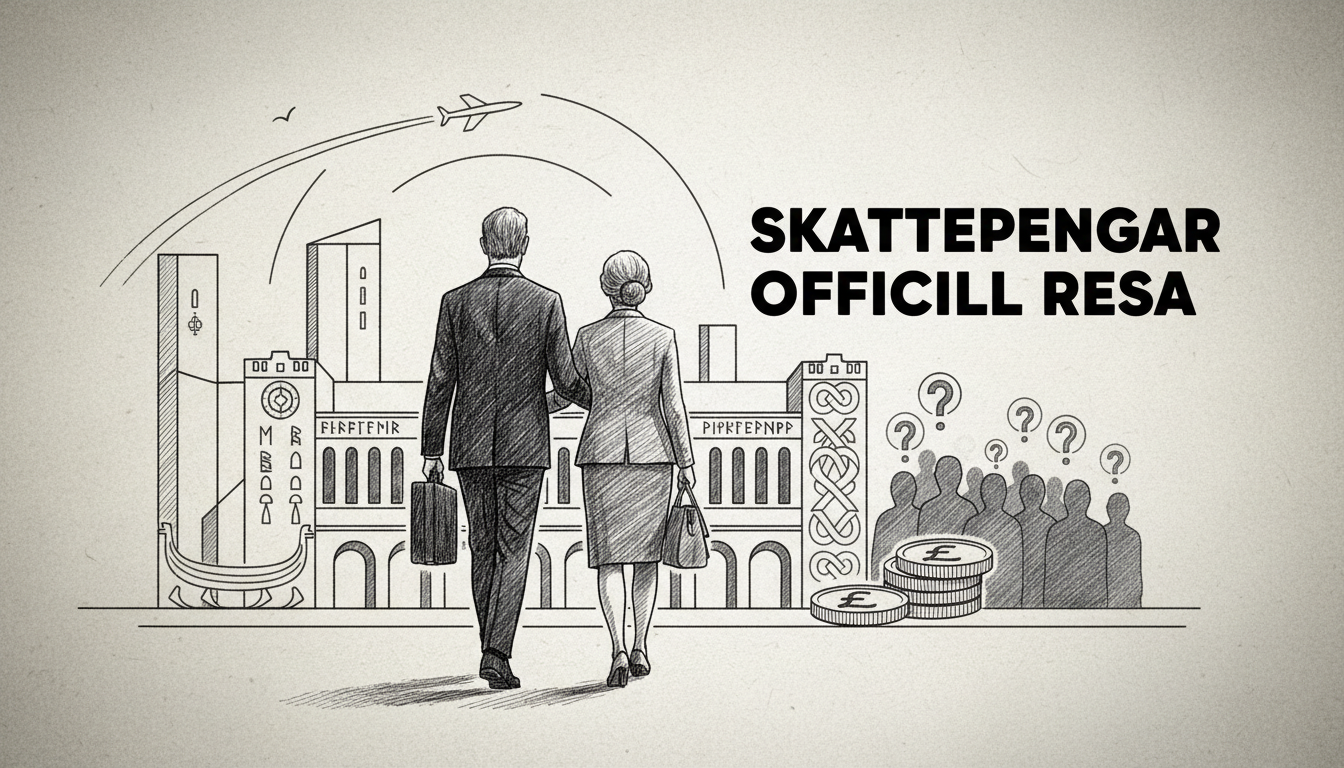Swedish Parliament Speaker Andreas Norlén faces scrutiny over his wife Helena Norlén's participation in official trips funded by taxpayers. Parliamentary rules allow spouses to join representation travels when "special reasons" exist, but the speaker himself determines what qualifies as sufficient justification.
Norlén has cited invitations as examples of "special reasons" and multiple decisions were signed after the trips occurred. "I believe this has been well-motivated and the costs have been limited overall," Norlén stated about the travels.
Helena Norlén has joined her husband on 19 domestic official trips within Sweden, a number that central sources describe as unusually high. She also accompanied him on journeys where only the speaker received official invitations. Norlén defends these decisions by saying the trips gained a more "personal framework" when his wife participated and incurred very limited additional expenses.
"It is assumed and in some cases expected that a speaker should represent with their spouse domestically and sometimes internationally," Norlén explained. "There has been a parliamentary regulation about this for a long time, which I have followed."
The speaker's travel practices have drawn criticism from opposition parties. "Individual events are one thing, but this is beginning to become something of a culture," said Social Democratic MP Eva Lindh.
Lindh, who serves on parliament's finance committee, questions Helena Norlén's role during these trips. "I don't react when the speaker's wife is officially invited, then she should participate. I react when she wasn't invited, when the speaker himself decided it was acceptable or not. That is an unreasonable procedure."
This situation highlights the delicate balance between parliamentary representation traditions and taxpayer accountability. The Swedish parliamentary system has long allowed some flexibility for speakers to include spouses in official duties, but the scale of Helena Norlén's participation appears unprecedented in recent memory.
Transparency concerns have emerged regarding communication about these trips. Reports indicate her participation wasn't consistently communicated on parliament's official website, raising questions about disclosure practices. Norlén responded that his Instagram account features numerous photos with his wife from these contexts, suggesting some public visibility.
The controversy comes amid broader discussions about public officials' use of taxpayer funds across Nordic countries. Sweden generally maintains high transparency standards, making this case particularly noteworthy for international observers of Scandinavian governance.
What makes this situation politically sensitive is the speaker's role as a neutral figure in Swedish politics. The parliament speaker traditionally operates above party politics, making any controversy surrounding the position particularly damaging to institutional trust.
The finance committee's interest suggests possible future scrutiny of parliamentary travel budgets. As a member of that committee, Lindh's criticism could signal deeper examination of how speakers and other officials justify representation expenses.
This case reflects ongoing tensions between traditional parliamentary customs and modern accountability expectations. While spouse participation in official duties has historical precedent, contemporary standards demand clearer justification and transparency about such arrangements.

